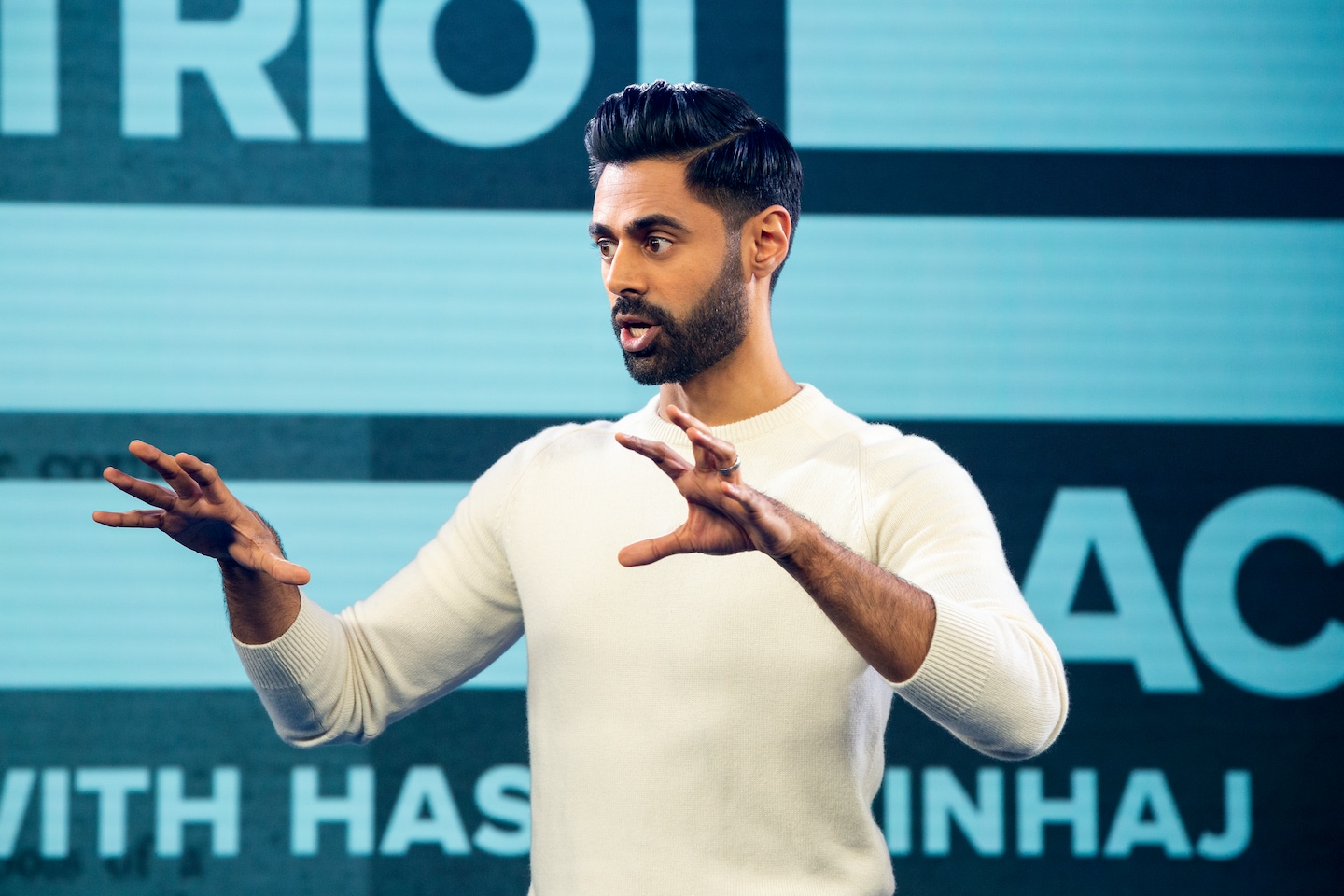‘Patriot Act With Hasan Minhaj’ spoke truth to power — and told our side of the story

As Netflix renews shows like “Riverdale” and “Love Is Blind,” it’s difficult to hear that “Patriot Act,” one of the most unique and uncompromising shows out there, was canceled this week. The political comedy show, which aired on Netflix for almost two years and won an Emmy, two Webby Awards and a Peabody Award, felt like one of the most authentic parts of the Internet. Through its weekly episodes, Patriot Act drew attention to underreported stories, took risks and played by its own rules.
It stood out for its truly global focus, covering censorship in China and protests in Sudan. Western news often makes its way into every country’s local papers, but international coverage can be undervalued in America. “Patriot Act” signaled that people should pay attention to what’s happening around the world — and explained how events from the other side of the globe had a wider impact. Even though the show was released in some 190 countries, “Patriot Act” also posted every episode on YouTube so people could watch it for free.
And as an Indian, I found it meaningful to see Minhaj throw in cultural references with no explanation, speak directly to the Asian American community about Black Lives Matter and refuse to mispronounce his name. After years of trying to catch up with American pop culture, “Patriot Act’s” desi references made me feel like I was in on the joke.
It proved that specific stories can be universal — they can speak to us and still reach everyone. It didn’t sensationalize Indian culture or simplify the truth for convenience — it was honest about the problems in our community, but didn’t use our culture as a punchline. Minhaj would casually slip into Hindi and talk about Kumon, lotas and WhatsApp group chats without defining what they were, proving that our culture doesn’t need to be subtitled.
The show felt intimate because every episode was based on Minhaj’s personal connection with the story. He spoke about the Indian elections and the Asian American vote, bringing the topics back to his experience growing up first-generation in Davis, Calif. It explored the intersections of what it means to be Indian and Muslim American, and Minhaj wasn’t afraid to call out his own community. After the murder of George Floyd, “Patriot Act” released a digital exclusive to interrogate how Asian Americans have been complicit in anti-Blackness, declaring, “You don’t just get to own the country’s excellence — you have to own its failures.” The show was brave enough to challenge the systems we live within, while also reminding viewers of what connects us.
At a time when South Asian creators have been criticized for missed opportunities to add nuance in shows like “Indian Matchmaking” and “Never Have I Ever,” the details of Minhaj’s story are what feel familiar and comforting.
It wasn’t perfect — former employees have spoken out about problems with its work culture. As we recognize the value of the show, we shouldn’t downplay the systemic issues behind the scenes. A show that calls out inequality and corruption needs to be held accountable as well.
But now that the show has been discontinued, it feels like we’ve lost an essential voice in the most pivotal election year and at a crucial time for racial justice. “Patriot Act” taught us about the most important issues we’re living through and created a space for us to engage with them in a fun and thoughtful way. For now, I’m grateful that it told our side of the story and gave us something to believe in.
Read more:






